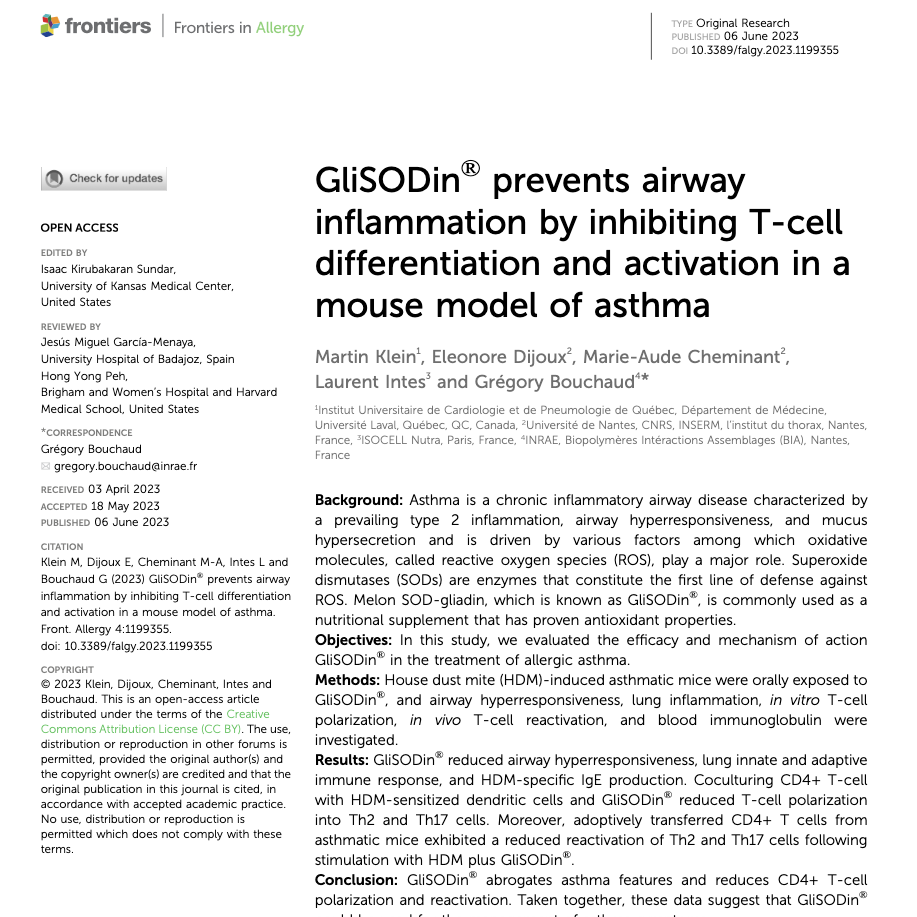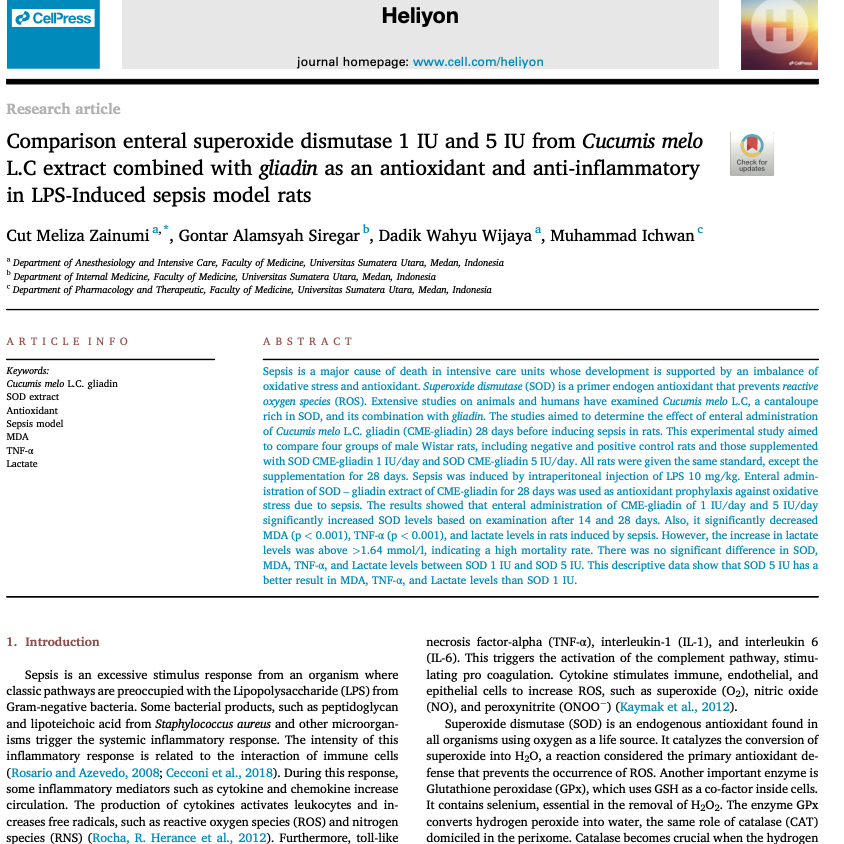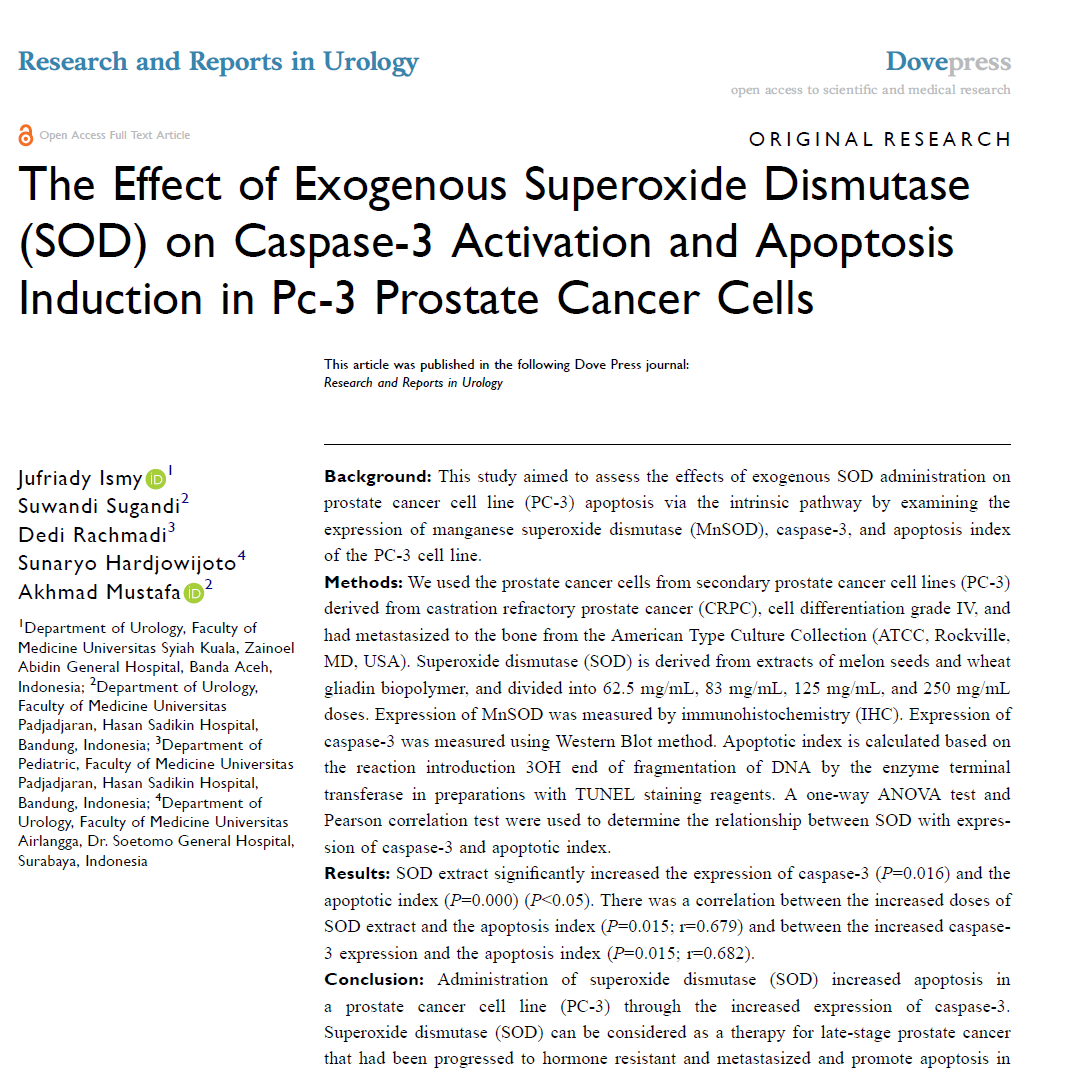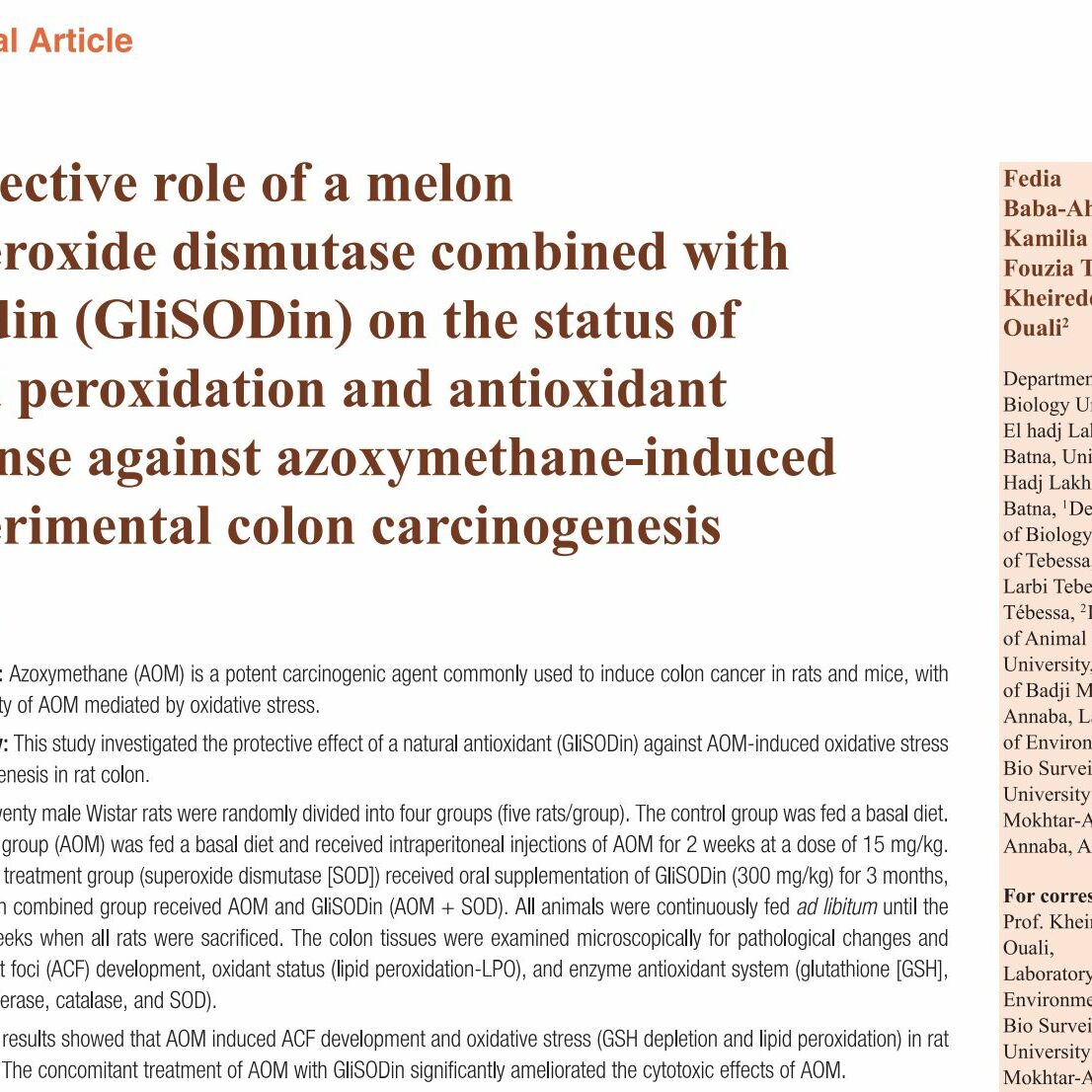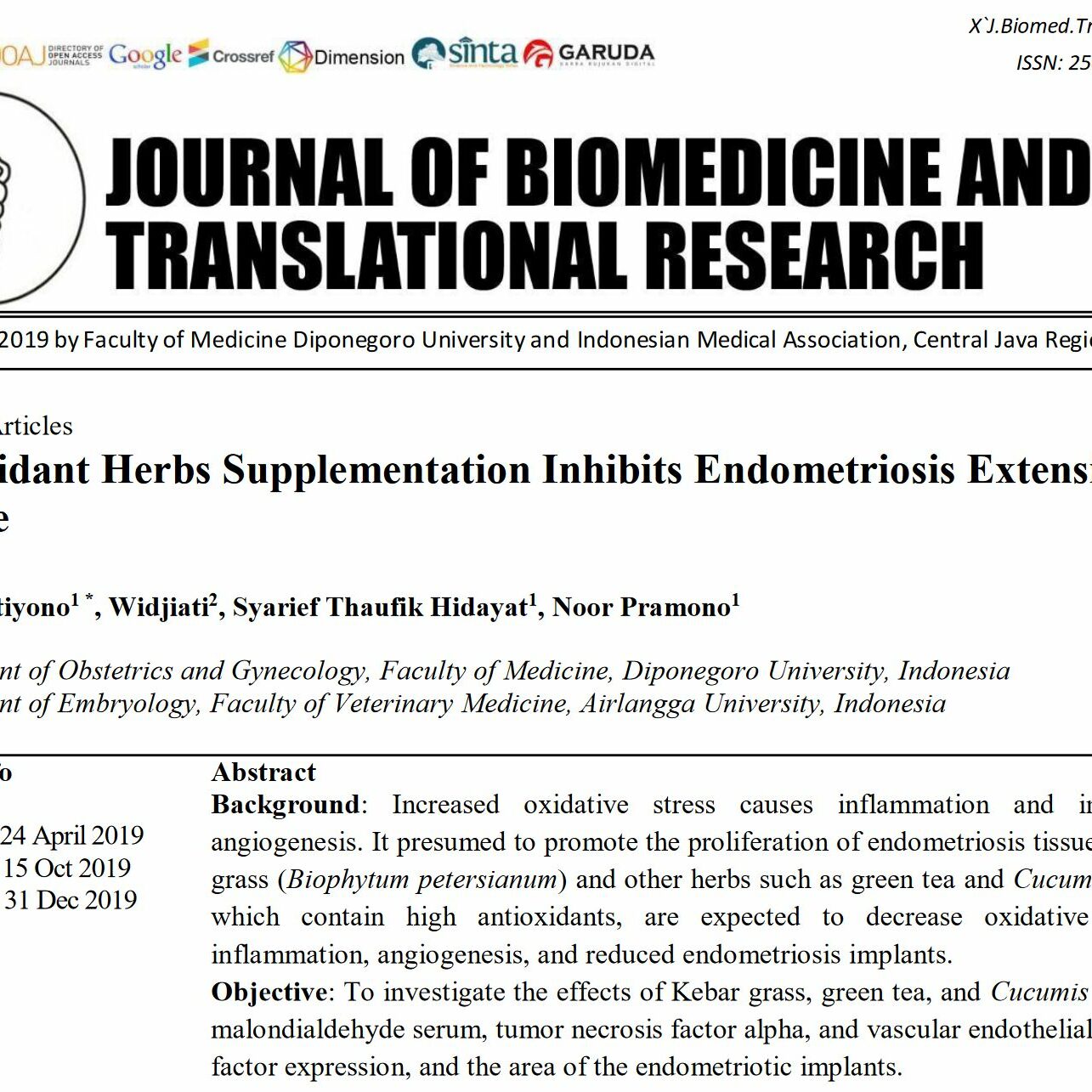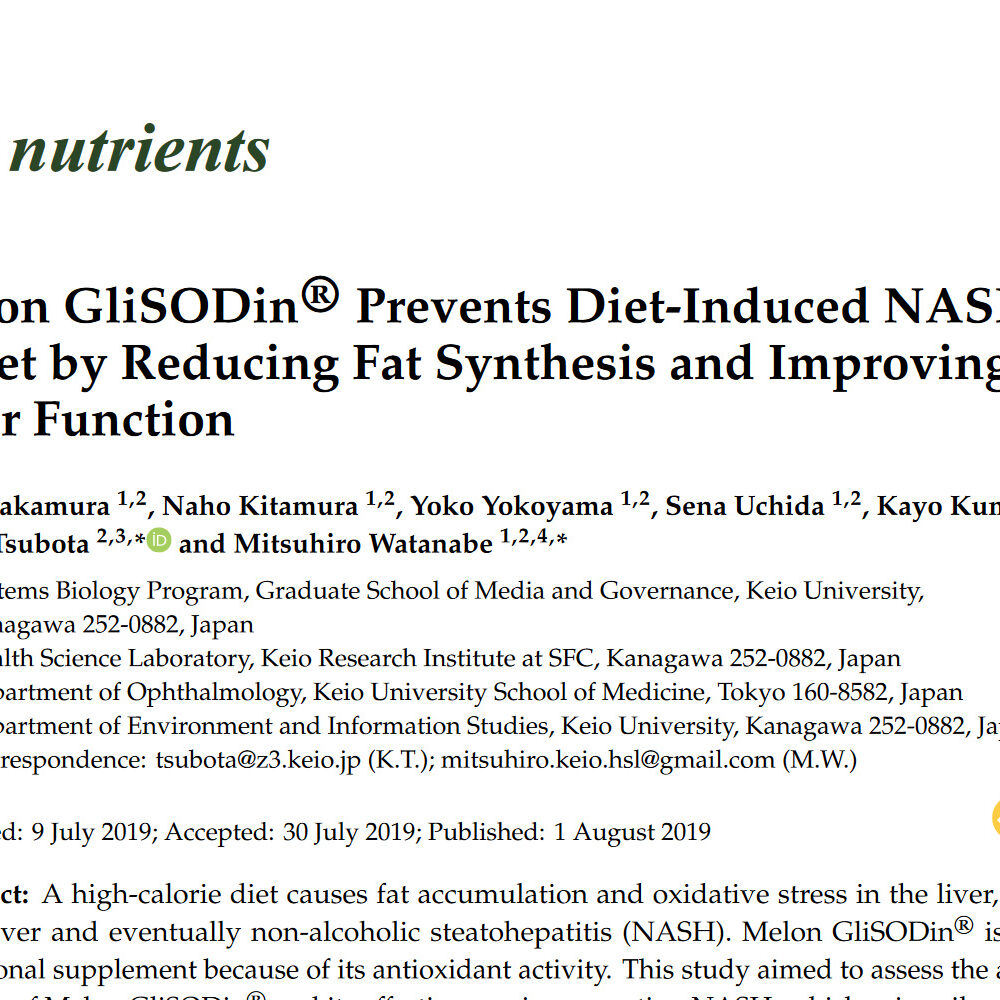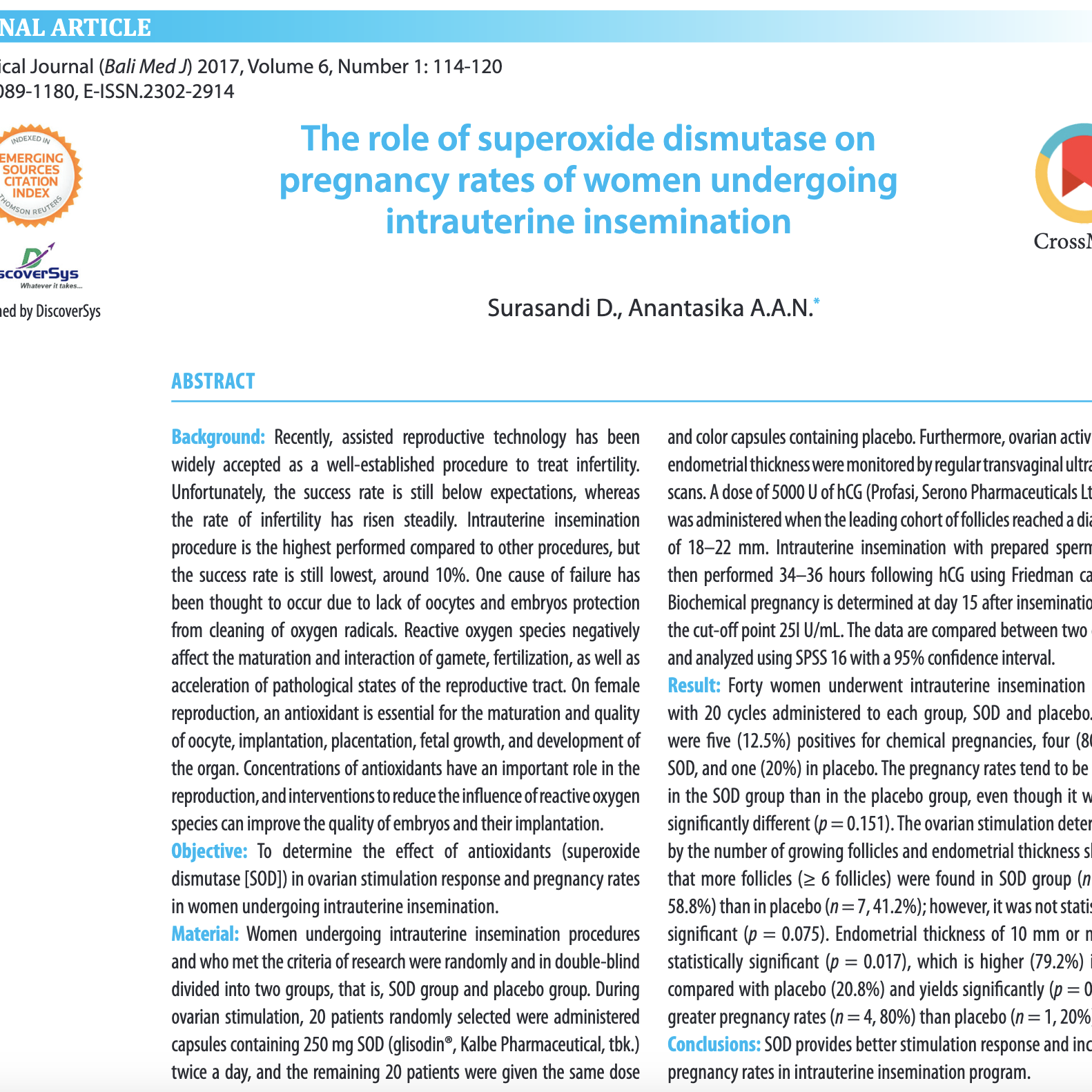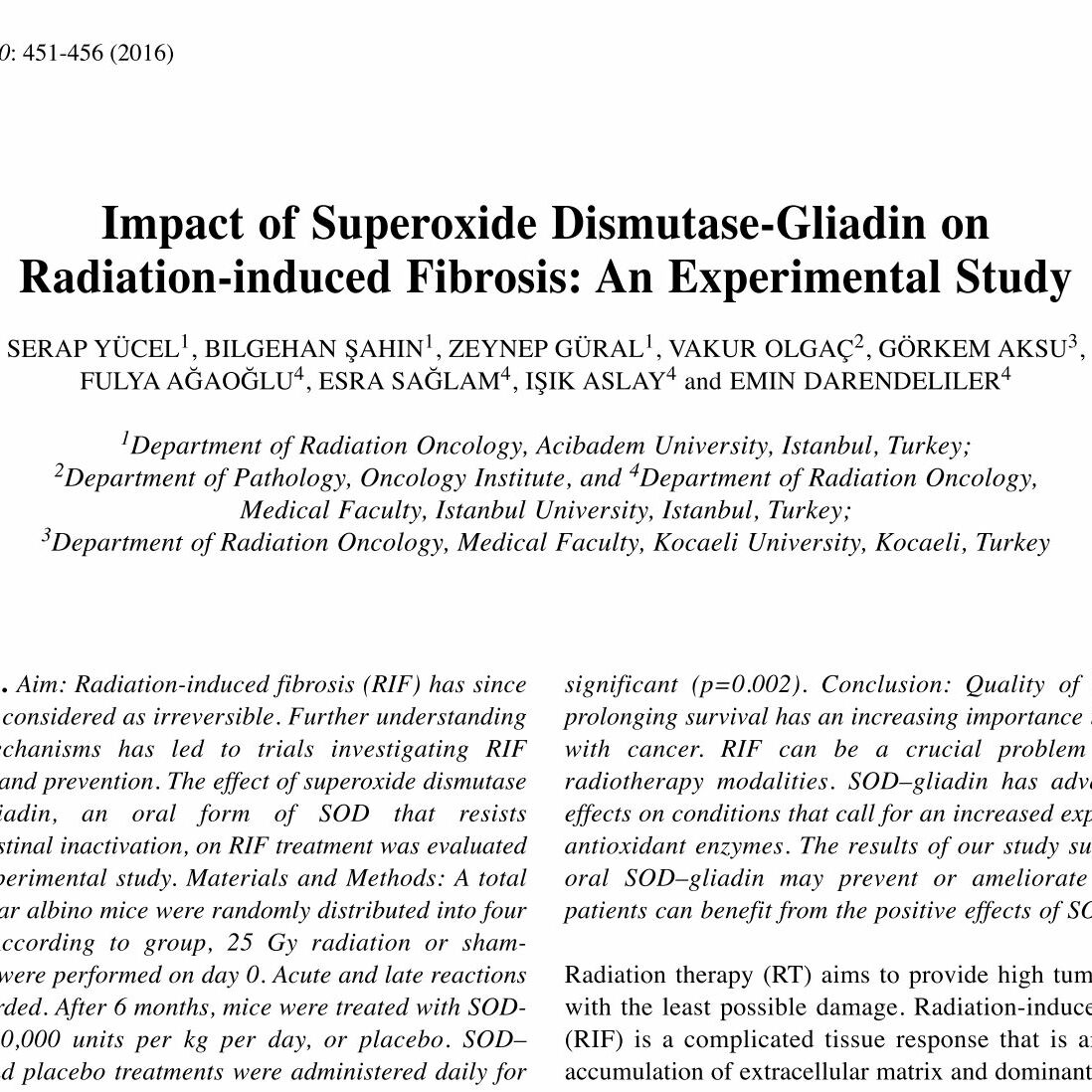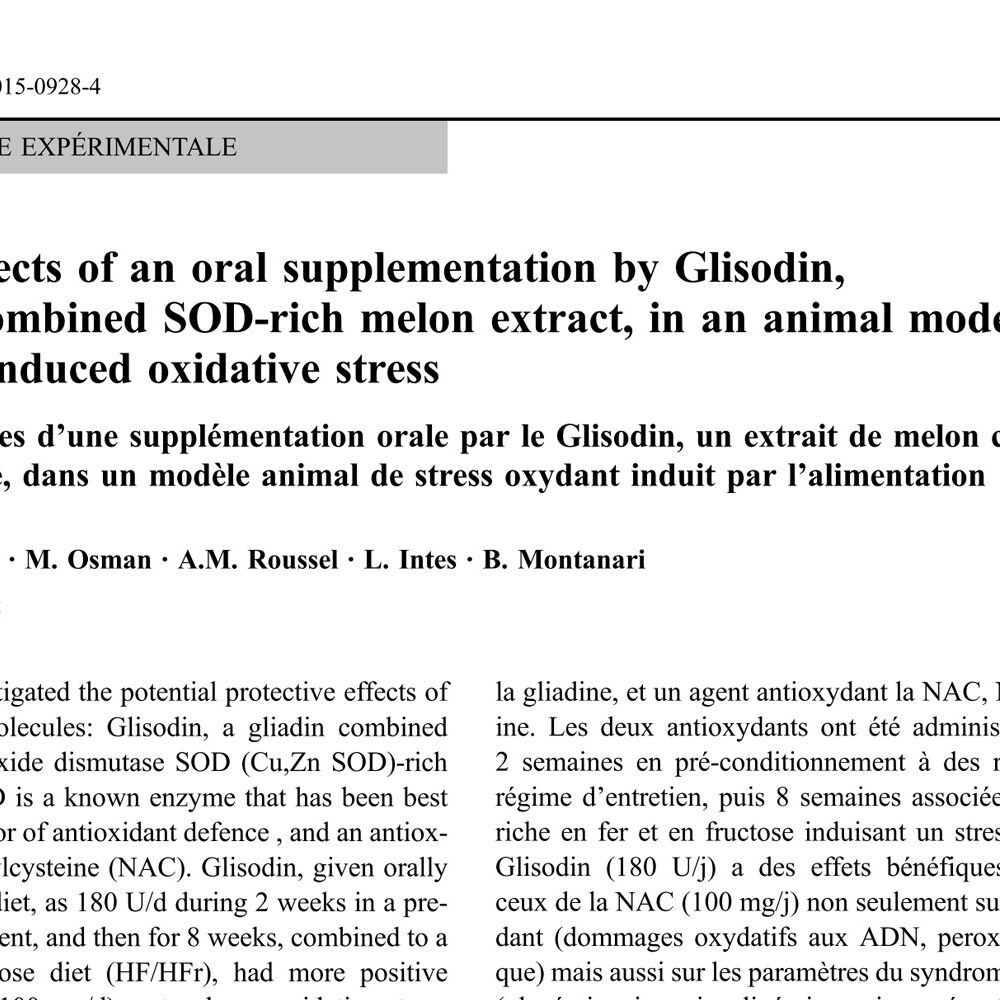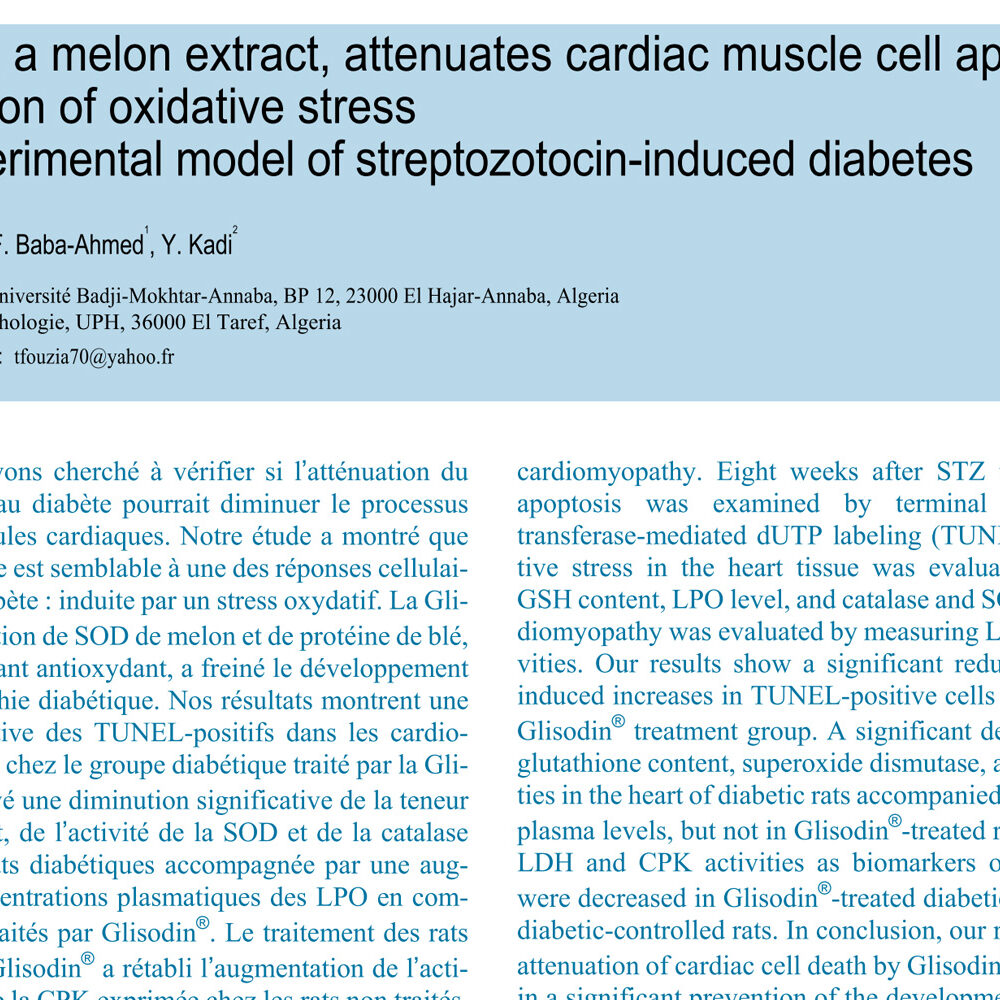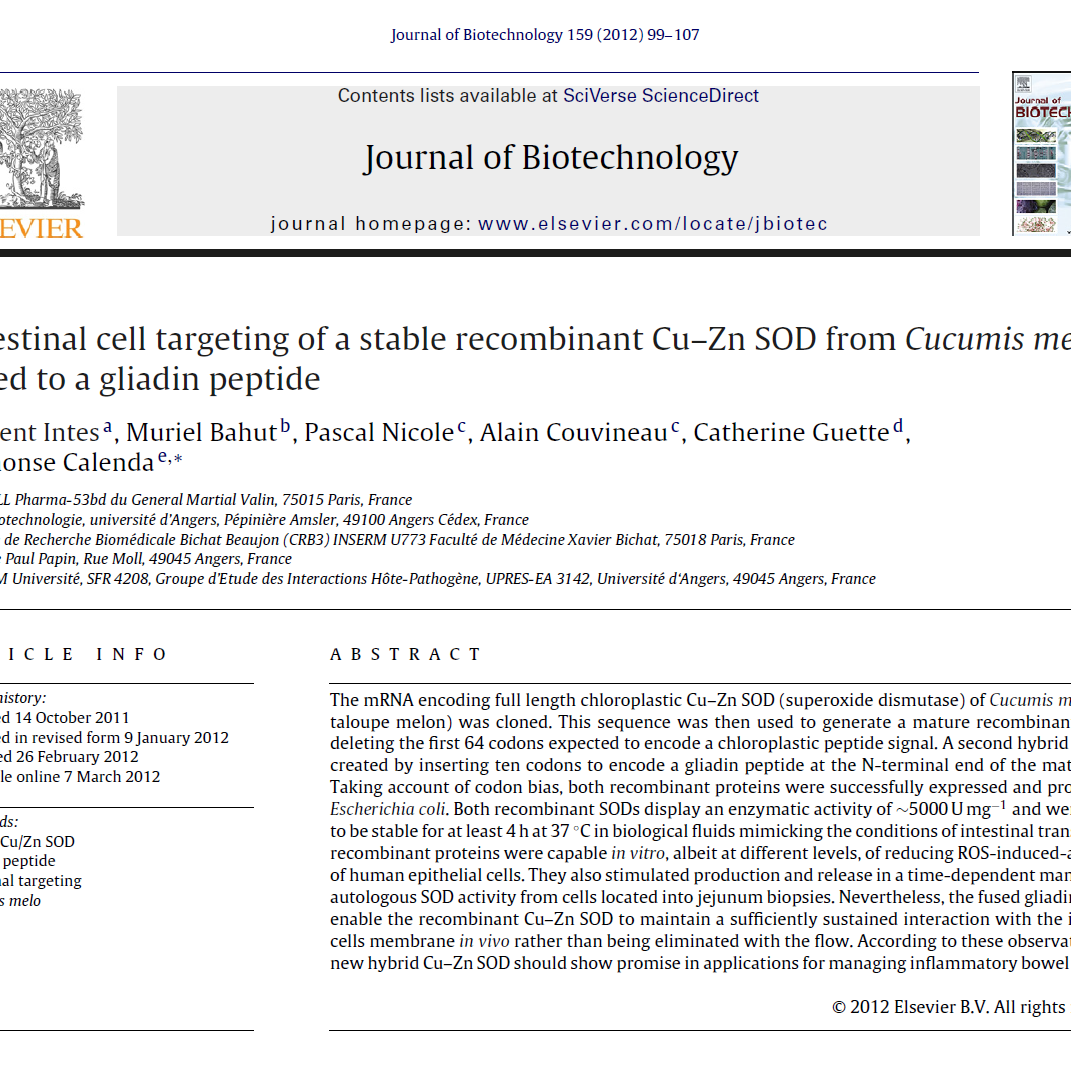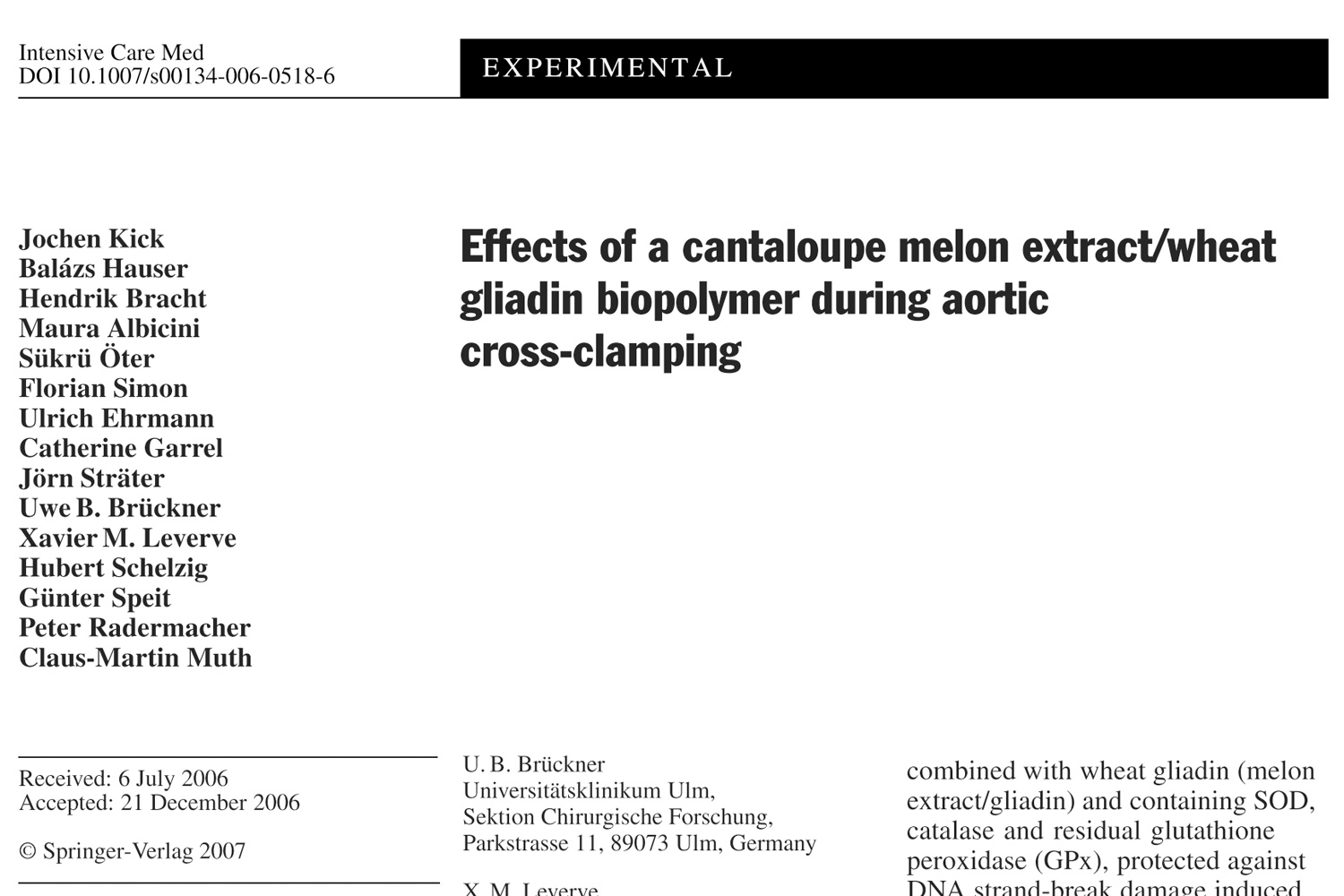
- Journal: Intensive Care Med
- Date: 2007 April
- DOI: 10.1007/s00134-006-0518-6
Abstract
Objective: We previously reported in healthy volunteers that a cantaloupe melon extract chemically combined with wheat gliadin (melon extract/gliadin) and containing SOD, catalase and residual glutathione peroxidase (GPx), protected against DNA strand-break damage induced by hyperbaric oxygen (HBO), a well-established model of DNA damage resulting from oxidative stress. Aortic cross-clamping is a typical example of ischemia/reperfusion injury-related oxidative stress, and therefore we investigated whether this melon extract/gliadin would also reduce DNA damage after aortic cross-clamping and reperfusion.
Design: Prospective, randomized, controlled experimental study.
Setting: Animal laboratory.
Patients and participants: 18 anesthetized, mechanically ventilated and instrumented pigs.
Interventions: After 14 days of oral administration of 1250 mg of the melon extract/gliadin (n=9) or vehicle (n=9), animals underwent 30 min of thoracic aortic cross-clamping and 4 h of reperfusion.
Measurements and results: Before clamping, immediately before declamping, and at 2 and 4 h of reperfusion, we measured blood isoprostane (immunoassay) and malondialdehyde concentrations (fluorimetric thiobarbituric acid test), SOD, catalase and GPx activities (spectrophotometric kits), NO formation (nitrate+nitrite; chemoluminescence), DNA damage in whole blood samples and isolated lymphocytes exposed to hyperbaric oxygen (comet assay). Organ function was also evaluated. Kidney and spinal cord specimen were analysed for apoptosis (TUNEL assay). The melon extract/gliadin blunted the DNA damage, reduced spinal cord apoptosis and attenuated NO release, however, without any effect on lipid peroxidation and organ function.
Conclusions: Pre-treatment with the oral melon extract/gliadin may be a therapeutic option to reduce oxidative cell injury affiliated with aortic cross-clamping.

